Every Actor's Nightmare, Inverted
Many of us can attribute our path to the theater to a dynamic teacher in school: the teacher that inspired us or showed us a new side of ourselves. This series is a snapshot of today's high school theater educators across the country sharing about what they do and how and why they do this work.
Teaching has always made me nervous. Very nervous. Especially teaching young people. Put me on a stage? Fine. No problem. Learning lines, singing, movement scores? Love it! Give me a script and an ensemble: hallelujah. But present me with planning a curriculum for a high school class, and my heart leaps into my throat.
However, I was thrilled to land my dream job teaching theater arts at a small private school in the Ojai valley in Southern California, founded on principles of deep questioning and individual growth. The place has nary a professional theater in sight and more boarding schools per capita than grocery stores. To assuage my deeply ingrained and irrational fears (of utter failure surely, for what creatures containeth more massively mercurial temperaments than a clutch of well-situated American teenagers?), I turned to inspirational texts from my own education. Leafing through a decade-old folder of handouts, I pulled a sheet of paper out that begins: “Dear Student...” and read on until I reached these phrases: “We ask you to feel safe NOT KNOWING. This is a school, the perfect place to not know. It is where, because we don’t know, we can discover that which will truly be new to us.” Thus began my training in physical theater and it established necessary links between body-awareness and self-determination in my mind. In order to be true to myself, I must know myself. My body has potential for great power and I consider the theater a place to harness and focus that power. This begins with awareness and observation. And that begins with being okay with not knowing.
In order to be true to myself, I must know myself. My body has potential for great power and I consider the theater a place to harness and focus that power. This begins with awareness and observation. And that begins with being okay with not knowing.
About four weeks into my first term I tripped into the other dimension, the one where “not-knowing” is not good. I had started the year with a healthy dose of physical awareness and meditation techniques, ensemble games, and creative writing, with no sign of a play or scene study on the horizon.
One afternoon, we concluded an exercise during which my high schoolers took turns making short introductions of themselves on a stage, addressing simple matters of physical presence that would get them more comfortable with each other. I called over one of my students for a chat right after class ended. “Katie” is a quiet girl with a very confident onstage presence, but had been half-hearted in her class participation. In this particular exercise, she became more resistant to each suggestion I gave her. When I asked for her feedback, she pressed her lips together and shrugged her shoulders.
After class ended, I was determined to find out what was going on. I asked if she was having strong emotions that were making the exercise difficult for her. The snort of condescension which followed was not the type of strong emotion I was expecting, but it opened the door just enough for me to jam my foot in. She admitted that she was frustrated by the class. She said she thought we were going to be doing standard scene work and learning monologues. AHA!
What a laugh to be confronted with the distinct displeasure of thwarted expectations, the dreaded teenage glare-stare. I told her I wanted the class to trust themselves and each other so we could break down a few obstacles before engaging text. But I was left feeling frustrated. Not with her, but with the standard theatrical protocol which insists that young people encounter theater through text first and foremost. Call me a convert, but theater is not literature, though there can be literature in theater. Acting is a physical function. It starts with the body. The body is the instrument. A theater without actors is not a theater; yet, theater without words exists the world over.
We insist on physically shackling our young people to desks at school with few approved structures that promote physical creativity, sports being the most common. And now as adults we find ourselves still sitting at desks, sitting in cars, and more recently, glued to personal devices that monopolize our consciousness, leaving the body to silently atrophy from disuse and disconnection. By asking my students to “feel how they feel” every time they come to class, to stretch and jump and shake, to bring consciousness to their breathing patterns, I am reminding them that they are bodies with potential. That their physical engagement is what moves the world around them.
By asking my students to “feel how they feel” every time they come to class, to stretch and jump and shake, to bring consciousness to their breathing patterns, I am reminding them that they are bodies with potential.
Although my students look at me askance and often ask “what does this have to do with theater?” I think that offering physical training in the context of theater is about more than just my own preference for physically dynamic theater. I believe that the principles of self-knowledge, understanding, and individual agency rooted in the actor’s work are directly needed in society and I don’t see much evidence that the structure of text-based theater models deliver these principles effectively. Particularly in regards to teaching young people, I say: how can one interpret a text, when one has nothing to compare it to and no primary relationship to it? The purpose of this type of theater teaching is to reward young people for learning their lines well. The consequence is that they are trained to accept that they need not have agency in their lives.
I don’t want to teach these kids to accept what is, but to create what is. In order for them to be able to do this, they need to practice being aware of and using their bodies for creation as well as engaging their minds. They need to dig in their own backyards before leaping over the fence, tearing it down, and finally opening up the space to invite other people in. Why should I continue to insist that in order to create they must first learn to pretend that someone else’s words are their own? That in order to act, they must first study? No. In my classroom what they must do first is be okay with not knowing what their lines are.

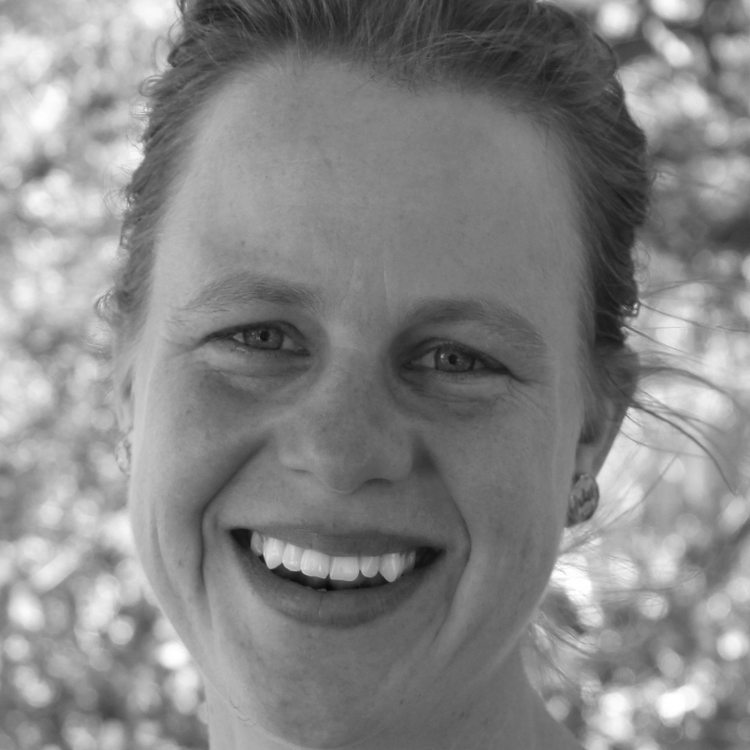
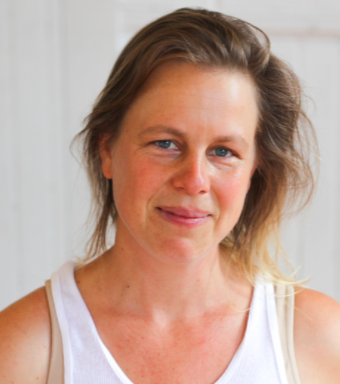
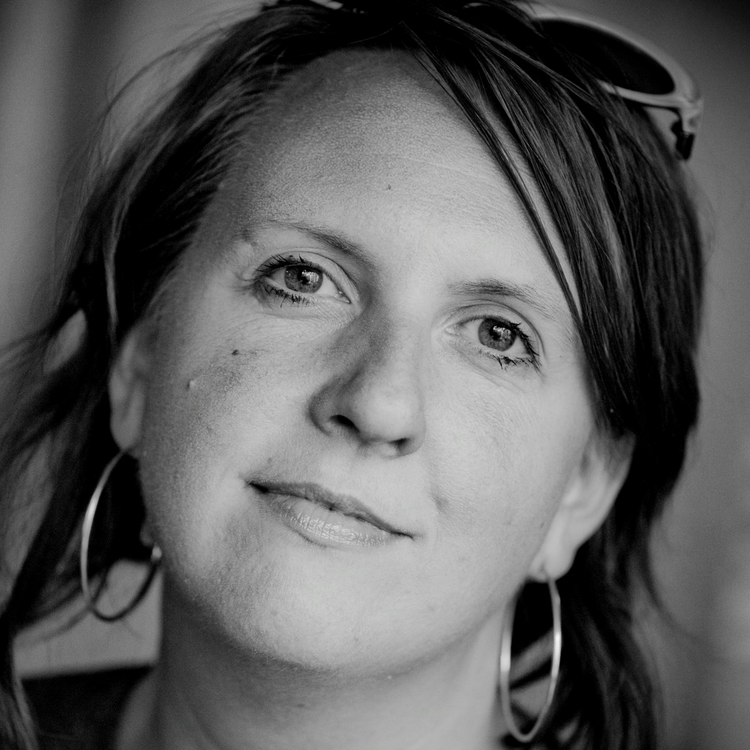
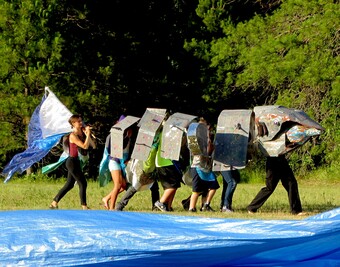

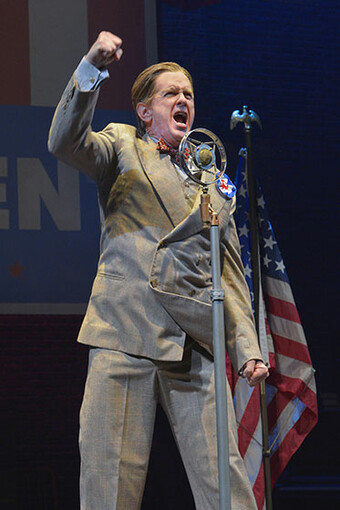

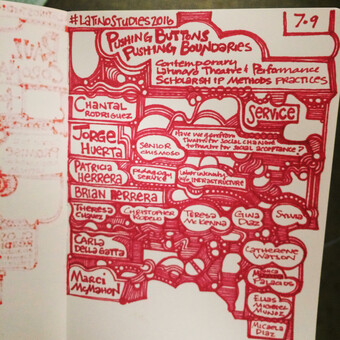

Comments
The article is just the start of the conversation—we want to know what you think about this subject, too! HowlRound is a space for knowledge-sharing, and we welcome spirited, thoughtful, and on-topic dialogue. Find our full comments policy here
Zuzka! Great to hear your very articulate thoughts and that you are taking your Dell'Arte training to where it counts--the next generation. You are one of the bravest people I know and those teens are damn lucky that you are their teacher!
It seems to me that you're doing extremely important work with your students. I imagine more than a few of them will one day be profoundly grateful for the space you're providing in which they can connect with the wisdom that arises when we're willing to "not know."
Zuska, First of all, it's great to see my old Dell'Arte famiglia here. Your story resonated with me - I have had the exact same experience, over and over. I have also had the experience with school administrators who believe they know as well as I do what theatre is (or could be? or should be?) It sounds like you are fortunate to work at a school that is actively structured on a different model. A lot of my job has wound up being managing the expectations of participants. I think middle school is a particularly difficult age to ask people to be IN their bodies. I'd love to hear more about how your teaching is going, and what strategies you have found successful with that age group.
Hi Teresa! yes, I do feel fortunate in the sense that I am "allowed" to teach how I see fit, but have found interestingly enough that it is typically expectations of other teachers and, even more so, of parents (communicated through teachers) that seems to come up as a concern. It is just crazy, isn't it! That the goal of an arts class is determined by parents' expectations. Surely it is partially related to the reality of private schools (and who pays tuition), yet I have found that other teachers are concerned about the kids "getting" what I am doing, because the teachers themselves don't "get" it, and those same teachers have yet to sit down with me and talk about theatre and my perspective on it in relation to their own experience of and with the form. Ha ha.
Regarding what it successful (so far!) - physical stuff. I warm up the kids with a set of 5 different kinds of jumping jacks. Dying dramatically. That's fun. Tongue- twisters (it's definitely physical!). And, surprisingly enough, working on grounding and stillness. Simply standing with their hands at their sides, feeling the ground supporting their feet, in stillness and silence for 30 seconds is a huge challenge for them, and yet they seem to get a secret enjoyment from it.
It's almost too hard for me to say yet what really works, because I still feel like I am just getting to know them (and they me) and also because I have had to separate out their normal pubescent whining from real confusion, their expectations of curriculum left over from their last Theatre Arts instructor, as well as figuring out when they are reflecting their other teachers' insecurities and not really their own.
Generally speaking, they do well with fixed routines and "knowing". This precludes listening in many cases (ie if they pretty much know what's going to happen in class, it becomes less necessary to pay attention to details - this much they've figured about school). So, I am working on getting them accustomed to the fact that in my class they can have lots of fun, but they must keep their awareness sharp in order to "know" what is going on. That's my challenge right now.
Good to hear from you.
Great article. I'm an actor who came up through the school of: "First week of class, memorize a sonnet. When you're done with that, memorize this passage from Glass Menagerie. We will then compare your's with the other students." I just recently had my first experience with a teacher who spent weeks on movement before launching into any talk of text (and this being an MFA program for playwriting, no less) and it was amazing. I'm super excited to hear there are teachers in high schools introducing this type of exploration early on. I think there are professional actors in their 50's who can't "feel how they feel". And as a middle school teacher, I understand the snort of condescension, glare-stare, and shrugged shoulders, but I love your line about "reminding them that they are bodies with potential", I'm gonna steal that... thanks for staying positive and motivating in a realm like high school. Those kids will never forget it!